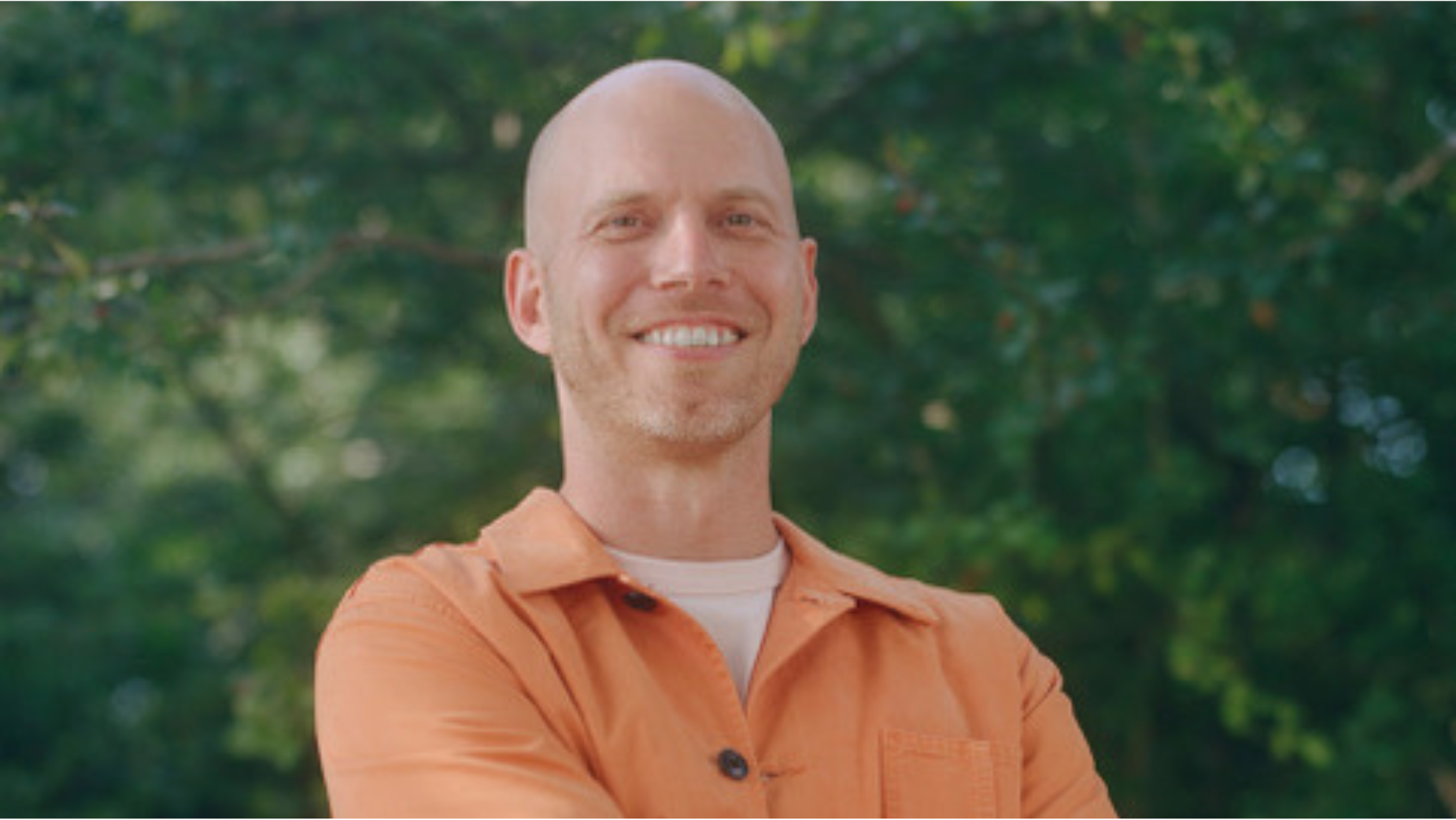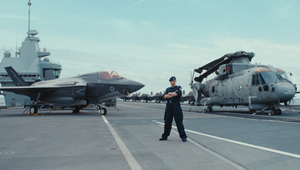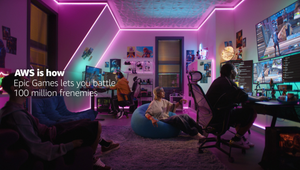
The Directors: Jake Mavity

Jake Mavity is a director whose work shows a rare kind of sensitivity and compassion, often reflecting life's complexities, both joyous and melancholic. Jake’s work, sometimes stylistic and sometimes poignant, has been awarded at Cannes and The British Arrows and he’s also directed for clients including Volkswagen, Lidl, Vodafone, Subaru Co-op, Google and McDonald’s.
Impressively achieving a First Class degree in Film, Jake worked as an editor; a start he says helped him develop his storytelling skills - and he’s constantly developing that craft; most recently writing and directing his short ‘Calico’ and before that, ‘Selsey Bill’ - the story of two angry and dysfunctional brothers reuniting following their dad’s funeral.
The film has won awards including ‘Best Director’ at Latitude Film Awards and has also been selected at numerous short film festivals including Kino International Short Film Festival and the Edinburgh Film Festival.
Name: Jake Mavity
Location: London
Repped by/in: Rogue
Awards: Bronze swimming badge amongst others…
LBB> What elements of a script sets one apart from the other and what sort of scripts get you excited to shoot them?
Jake> I’ve been shared scripts in all their various guises; from the ‘researched for nine months and now on it’s 154th draft so carved in quartzite by lasers’ script to the ‘scribbled down in a mad bit of brilliance on someone’s hand at the back of a pub in eyeliner’ script. And I always have the same simplistic approach. “Does it make me feel something? And do I think I can make this feeling, bigger, bolder and better?”
LBB> How do you approach creating a treatment for a spot?
Jake> Chatting to the creatives is the first stage, which is super important as I like to understand the journey of the script. Where it’s been can be as important as where they would like it to go.
Then I like to let the idea prove a little. So I pack it away in a cool, dark place and go off to listen to some jungle or point at ducks with my son or make some fresh pasta with my wife and feel inferior because her tortellini looks like little crowns for fairies and mine look like decomposing finger tips … And then I come back and hopefully the magic of distance has done its thing and the idea has expanded.
Then I have the bracing realisation that I’ve not left myself enough time. The deadline is looming. What the hell was I doing making pasta? Nothing for it but to write like crazy. Edit ruthlessly. Write like crazy. Edit some more. And deliver.
LBB> If the script is for a brand that you're not familiar with/ don’t have a big affinity with or a market you're new to, how important is it for you to do research and understand that strategic and contextual side of the ad? If it’s important to you, how do you do it?
Jake> Understanding both the brand and the strategy behind it is vital. And yep, I do my homework because I’m the sort of person who likes to be absolutely all over the details.
LBB> For you, what is the most important working relationship for a director to have with another person in making an ad? And why?
Jake> I mean, almost every film wouldn’t happen without a kick-arse/ass producer. But each execution has its own individual needs. I’ve done jobs that were so performance driven they could have been shot on a potato and I’ve done jobs where the cinematographer and myself have been the only crew and it is all about capturing some magic together. So it depends on what the creative demands. But it’s always a team game.
For me, the most beautiful part of the process is the relationship (I originally wrote symbiosis but I don’t want to be that guy…) between myself and my heads of department and each of their individual teams. Every time I step onto set I am always humbled by the crew’s talent, love and energy.
And I’ve not done a job that hasn’t massively benefited from an extremely close relationship with the creative team. Stress-testing ideas in a safe, open and encouraging environment always improves the work.
LBB> What type of work are you most passionate about - is there a particular genre or subject matter or style you are most drawn to?
Jake> Performance has always been central to everything I do - but the clothes I dress the performance up in change wildly depending on the story I’m telling. I love surreal stuff. I love silly stuff. I love experimenting and pushing the boat out visually. I love pulling the boat back in and capturing beautifully-observed, everyday moments. I love stuff that makes me laugh and I love stuff that makes me cry.
And I really love combining all these things to depict the messy, contradictory nature of life in all its joyous, heartbreaking glory.
LBB> What misconception about you or your work do you most often encounter and why is it wrong?
Jake> I think people have perhaps underestimated me in the past. I didn’t burst onto the scene straight out of film school (the Straight Outta Compton sequel no-one asked for) clutching a shiny piece of awarded work. I worked my way up from being a runner and had to take the long way round to get to where I wanted. I was an editor, I made stop-frames, I wrote and shot content & corporate work, all whilst using my editing career to self-fund my promo work to build my showreel. But I’m proud of that.
It was a lot of blood, sweat and tears (mainly sweat and tears in fairness), but I’ve learnt something on every job. And the biggest thing I’ve learnt is to really appreciate all the strong people who help move the camera and lighting kit as it’s effing heavy when it’s just me carrying it up the stairs…
LBB> Have you ever worked with a cost consultant and if so how have your experiences been?
Jake> Yes I have and it is a bit of a weird one. It feels short sighted to not make the creative as good as it could be, as the better the film the more effective it will be. You can save money by removing every other rung of a ladder too I guess.
But that’s a producer question really, as they are the ones having to stretch budgets. When it comes to controlling cost, there is a change I would like to see. Pitching is the most important part of the entire process. It is where the idea is forged and the treatment (certainly in my case) will become the production bible. And it is all unpaid!
I’ve been very lucky and I was able to keep working as a freelance editor when I was starting out, so losing pitches was painful but I could still pay rent. But lots of young directors don’t have a side hustle sustaining them through the tough early days. And maybe I’m old fashioned but I think if people do work, they should be paid for it.
LBB> What’s the craziest problem you’ve come across in the course of a production – and how did you solve it?
Jake> I kinda want to have a really macho answer here involving stunt people backflipping over helicopters and me fashioning a rudimentary Alexa LF out of bamboo and spider webs deep in the jungle in order to get the shot. But I don’t.
I was shooting a summer campaign when we got hit by a freakish snow blizzard and within an hour everything was under about 50cm of snow. We all dug with whatever shovel-like thing we could lay our hands on (I’m pretty sure I used my iPad case).
The grass wasn’t too happy about the whole situation and decided to go very grey in protest and basically ended up looking like one of those three week old salad bags I occasionally find at the back of my fridge. We ended up replacing everything below ankle height in post and it all looked surprisingly great in the end.
LBB> How do you strike the balance between being open/collaborative with the agency and brand client while also protecting the idea?
Jake> Ha that’s the crux of the job. Personally I make love not war (not literally. Please don’t report me to HR). And I try to not to behave like a massive spanner when I’m trying to bring people onboard with my vision.
I’m always open to there being a better, cleverer, wittier idea than mine, so I’m never closed-minded about new thoughts and suggestions. But the editor in me is constantly fine-tuning the film in my head, so I have a very clear idea of what I need creatively and how I best achieve getting it.
LBB> What are your thoughts on opening up the production world to a more diverse pool of talent? Are you open to mentoring and apprenticeships on set?
Jake> I’m currently mentoring a talented young filmmaker who lives up in Leicestershire. Although having time on set is great and all, directing is so much more than those shoot days at the end of the production. Now that most meetings are done online, I’ve been able to share the entire production process with him, from pitching onwards. Apprenticeships are a vital component to allow the next generation through.
Previously if you were based somewhere up north, you had to either go live in Manchester or get your arse down to London. Which is simply not financially possible or that attractive a proposition for many talented people. The industry is still massively skewed towards affluent people who live in or around London and that needs to be addressed.
LBB> Your work is now presented in so many different formats - to what extent do you keep each in mind while you're working?
Jake> I would love to see a bit more love given to social formats. There are lots of young, talented creatives and filmmakers who need a break into the industry and this would be a path in. Currently everything is kinda bundled together. Rather than just extracting a 9:16 frame from a film made for a totally different demographic, emerging talents could be given the reins to make bespoke campaigns for TikTok etc. I know it happens, but I think it should happen much more.
LBB> What’s your relationship with new technology and, if at all, how do you incorporate future-facing tech into your work?
Jake> It’s a big question. Historically the industry has thrived on technological change. But the move to colour film or digital seems like a natural evolution whilst the move to AI has the potential to be a bloody revolution.
It can be an amazing tool and the advances in rotoscoping hair for example are brilliant. We used AI to help map the mouth of a fish to make it talk in Calico, my latest short, so as an extra filmmaking device I’m fully behind it. But we need to be careful about elevating AI to creator-level.
Filmmaking (and art more broadly) is hot-blooded and passionate. Sharing human experiences, telling stories, making us laugh and cry, challenging ideas and provoking thought, discussion, conflict and resolution. Used right it is an amazing and profound expression of humanity. If we synthesise the creative process, we will lose the heart and soul which makes it so special.
And I’m sorry, when I envisioned having robo-helpers, I thought we’d give them the boring jobs. Why are we elevating them to writers, poets and artists whilst I spend every January in a total panic trying to get my accounts done in time?
LBB> Which pieces of work do you feel really show off what you do best – and why?
Jake> To keep my ideas fresh I try to change lane as much as I can, so these recent pieces show off a bit of CGI, a dash of documentary, some in-camera techniqueness plus a big dollop of performance and emotion. Oh and talking animals of course.
Calico: Calico is a short film I wrote with my partner Sarah Mavity. It is about a 15year-old girl who has vitiligo over her face and body. Bullied at school and misunderstood by teachers for not wanting to swim, she is withdrawn and shy, hiding in her own fantasy world of comics and animation. She forges an unlikely friendship with the school’s mottled goldfish (played by Jamali Maddix). When the goldfish begs her for help to escape, she goes on a cathartic adventure of magical realism to help it find freedom.
It took 4 years to find our lead (Malaysia Newland) who had never acted before and another 4 months of workshops and rehearsals with her before we shot. So many talented people came onto the project to make it happen and it was a true labour of love. It is now doing the festival circuit, hopefully making a big splash… (apologies for the bad dad joke.)
So many talented people came onto the project to make it happen and it was a true labour of love. It is now doing the festival circuit, hopefully making a big splash… (apologies for the bad dad joke.)
North Downs - Here Comes Butterflies: This had absolutely no money but I’d worked with the artist previously and had total free rein to do what I wanted. As there was no cash I was the set designer, the producer, the PM, the PA… and it was one of the most stressful productions I’ve done and one of the most satisfying. A proper get my hands dirty job.
There was something gloriously humbling about stepping onto set that day and instead of talking through the schedule with my first assistant or prepping the actors whilst sipping a posh coffee, I went around the crew collecting their number-plates so I could sort out the parking.
OceanSavers - Thank you: Sometimes you get a script and it is so bonkers it can’t not be brilliant. Sea-shanty singing crabs? Oh yes please! I’ve down a fair bit of animated animals (I’ve got moles, fish, frogs and squirrels under my belt) but giving crustaceans characters and charisma was an intriguing challenge. The lovability factor of a crab is low because they look like a mad, wee alien, so the challenge was to make them not just sing and dance but be adorable too. I did a human casting first so I could match looks and personalities to each crab. This meant the VFX peeps and I had a shorthand when building the characters, with each crab having distinct and identifiable traits.
McDonalds - The Meal: I’ve done a lot of work with McDonald’s over the years and I’ve always loved working on their projects as there is a lot of really great commercials made by really smart creatives. But this project was properly special and a really brill idea to boot. We filmed a load of awesome kids reacting to the smile being removed from Happy Meal packs for Mental Health Week. Giving a platform to kids to talk about their thoughts and feelings surrounding mental health was funny, poignant, unexpected and incredibly illuminating. A big emotional hit and everything that I want my films to be!















